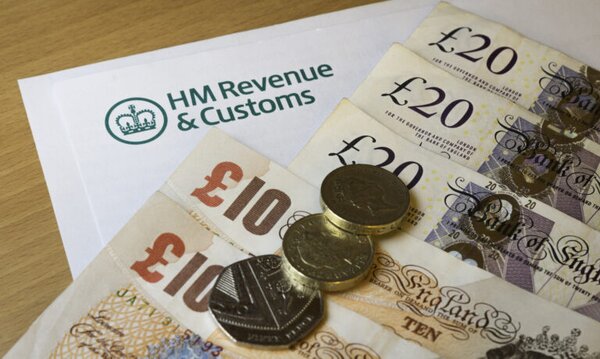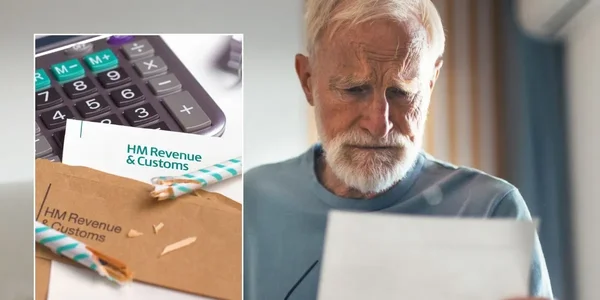Let’s Break This Down Together…
Getting hit with an HMRC penalty can be stressful, frustrating, and expensive, especially if you thought you were doing everything right. Whether it’s a missed deadline, a filing error, or a late payment, these penalties can pile up fast. But here’s the thing: not every penalty is final.
If you had a genuine reason for falling behind, HMRC may cancel the charge, but only if your excuse meets their definition of “reasonable.” That’s where this guide comes in.
In this article, we’ll break down what HMRC considers a reasonable excuse, which claims are most likely to succeed, and how to submit an effective appeal. Whether you’re facing a Self Assessment fine, VAT penalty, or corporation tax charge, knowing your rights, and your responsibilities, is the first step toward putting things right.
When HMRC Penalties Strike
Getting hit with an HMRC penalty can feel like a punch to the gut. These charges can range from a few hundred pounds to thousands depending on what tax rules you’ve broken. Late submissions, including late tax returns and assessment tax returns, are common triggers for penalties.
The severity often depends on how long the issue has been ongoing. Penalties start accruing from the moment a deadline is missed, and can increase over time, especially for self assessment tax returns and income tax. A client of mine once received a £1,200 penalty for a three-month filing delay that could have been avoided. Indirect tax penalties (such as for VAT) and direct tax penalties (such as for income tax and capital gains tax) are both enforced by HMRC. Higher penalties may apply for certain types of income, such as offshore income, and penalties are often based on the tax liability that was underreported or paid late. Penalties can relate to specific tax years, so understanding your self assessment tax obligations for each tax year is crucial.
Self employed individuals must file self assessment tax returns and are particularly at risk for Supplementary penalties if they miss deadlines. Self assessment tax, self assessment tax returns, and assessment tax return requirements are central to HMRC’s compliance process, and late submissions can quickly lead to additional penalties.
But here’s the good news – you might not have to pay if you have a valid reason for missing deadlines or making mistakes. The key is understanding what HMRC considers a “reasonable excuse”.
Types of Tax Penalties
HMRC enforces a range of tax penalties to encourage compliance with tax rules and ensure everyone meets their Tax responsibilities. The most common penalties include late filing penalties, late payment penalties, and penalties for errors or inaccuracies in your tax return.
Late filing penalties are charged when you miss the deadline for submitting your tax return, whether you file online or use paper tax returns. Even if you have no tax to pay, failing to file on time can result in an automatic penalty. Late payment penalties, on the other hand, apply if you don’t pay your tax bill by the due date. These penalties can increase the longer your payment remains outstanding, and HMRC may also charge interest on late payments.
Penalties for errors or inaccuracies in tax returns can be more severe, especially if HMRC believes the mistake was due to carelessness or was deliberate. The amount of the penalty often depends on how serious the error is and whether you took reasonable care to submit accurate tax returns. Understanding these different types of tax penalties is crucial for managing your tax affairs, meeting deadlines, and avoiding unnecessary fines from HMRC.

What Counts as a Reasonable Excuse for HMRC?
A reasonable excuse is something unexpected or outside your control that stopped you meeting your Tax commitments despite your best efforts. HMRC defines it as “something that prevented you meeting your Fiscal duties that you took reasonable care to meet”.
It’s not enough to just have a good excuse, you need to show you acted responsibly before, during and after whatever happened. The burden of proof sits with you, not HMRC. Each appeal is considered on its own merits, and HMRC will weigh the specific circumstances of your case.
This means you need evidence backing up your claim. Unforeseen events, such as natural disasters or unexpected emergencies, are often accepted as reasonable excuses if properly documented. What works as a reasonable excuse can vary between different taxes, but the core principles remain the same.
Common Reasonable Excuses HMRC Accepts
Serious illness or hospital stays, especially if they happened close to the deadline, often succeed as reasonable excuses. HMRC recognises that health emergencies take priority over paperwork.
Bereavement of a close relative shortly before a deadline is generally accepted. HMRC understands grief affects your ability to handle financial matters.
Technology failures beyond your control, like genuine HMRC website crashes or software problems, can work if properly documented. Natural disasters affecting your home or business premises typically qualify.
HMRC’s own errors, like giving you incorrect advice or system failures on their end, make strong appeal cases. You’ll need to prove what happened with screenshots or reference numbers.
Special circumstances, such as natural disasters or technical failures beyond your control, can also be considered valid excuses by HMRC.
Excuses That Usually Get Rejected
“My accountant messed up” rarely works unless you can prove you took reasonable steps to check their work. You’re still responsible for your tax affairs.
Claiming you didn’t know about a tax deadline or obligation almost never succeeds. HMRC expects taxpayers to know or find out their responsibilities.
Cash flow problems or financial difficulties don’t qualify as reasonable excuses for late payment. HMRC expects you to set aside money for tax obligations.
Simple forgetfulness or poor time management won’t get you off the hook. First-time mistakes without any exceptional circumstances behind them typically get rejected. Providing incorrect information on your tax return, whether by mistake or deliberately, is not considered a reasonable excuse and can lead to further penalties.

How to Submit Your Penalty Appeal
Act quickly, you usually have just 30 days from the date on your penalty notice to submit your appeal. Missing this deadline can mean losing your right to appeal altogether. Submitting a late appeal is only accepted in exceptional circumstances and may be rejected without a valid excuse.
Use the correct forms for your tax type. You must complete the appropriate appeal form, such as the SA370 for Self Assessment, and submit it to the relevant HMRC office. For VAT, use the VAT652 form.
Many appeals can now be submitted online through your tax account. You can appeal online using HMRC's online services, which require a Government Gateway account. Appealing online allows you to upload supporting documents directly and track the status of your appeal.
Include all supporting evidence with your initial submission, medical notes, death certificates, or screenshots. You should also include a copy of the penalty explanation letter you received from HMRC, as this outlines the reason for the penalty and the period it covers. HMRC may request additional access to your records or documentation to support your appeal.
Be specific about dates and timeline. Explain exactly when the issue began, when it ended, and what steps you took once you were able to address your tax obligation. It is important to inform HMRC promptly if your circumstances change, and notify HMRC if you believe the penalty was issued in error.
Keep your explanation clear and factual. Avoid emotional language and stick to the relevant details that directly relate to why you couldn’t meet your tax obligation.
Building a Strong Appeal Case
Document everything as it happens. Keep records of phone calls with HMRC, screenshots of technical issues, medical letters, or any other evidence as events unfold.
Third-party evidence carries more weight than just your word. Get statements from doctors, IT professionals, or other relevant experts who can verify your situation.
Show the direct link between your excuse and your tax failure. It’s not enough to have been ill, you need to explain why that specific illness prevented you from meeting that specific obligation.
Remember, HMRC penalties are often penalty based, meaning they are calculated according to the nature, timing, and severity of your non-compliance.
Demonstrate what reasonable steps you took despite your circumstances. For example, if you were ill, did you try to get someone else to help with your tax return? Showing that you made efforts toward paying your tax liability, even if late, demonstrates good faith to HMRC.
Explain how you fixed things promptly once your reasonable excuse ended. HMRC wants to see that you took action as soon as you could. Providing evidence that you have paid or are in the process of paying any outstanding tax can strengthen your appeal.
Alternative Dispute Resolution: Other Ways to Resolve Your Case
If you find yourself in a dispute with HMRC over a tax penalty, Alternative Dispute Resolution (ADR) can offer a practical way to resolve the issue without the need to go to a tax tribunal. ADR is designed to be a quicker, less formal, and less stressful part of the appeal process. It involves a neutral third party who helps both you and HMRC discuss the case and work towards a mutually acceptable solution.
ADR can be especially helpful when your case involves complex issues or when communication with HMRC has broken down. You can request ADR at almost any stage of your appeal, and HMRC will review whether it’s suitable for your situation. While ADR doesn’t guarantee a particular outcome, it often leads to faster resolutions and can help avoid the time and expense of a formal tax tribunal.
If you’re considering ADR, it’s a good idea to seek advice from a tax advisor or solicitor who understands the appeal process and can help you present your case effectively. This support can make a real difference in achieving the best possible result for your tax dispute.

Navigating the Appeals Timeline
The standard appeal process starts with your initial submission within 30 days of receiving the penalty notice. HMRC then reviews your case, which typically takes about 45 days. The potential outcomes of an appeal include the penalty being cancelled, reduced, or upheld.
During this time, they may ask for additional information or evidence. If your first appeal is rejected, you can request a formal review by a different HMRC officer. If your case is appealed and HMRC agrees with your reasoning, the penalty may be amended or cancelled.
For suitable cases, you might consider Alternative Dispute Resolution (ADR). This involves an independent HMRC mediator helping to resolve the dispute.
If you disagree with HM Revenue and Customs' decision after these steps, you can take your case to the First-Tier Tribunal for an independent review. Be aware this is a more formal legal process with strict procedures and potential costs.
Final Thoughts
Successfully appealing an HMRC penalty depends on having a genuine reasonable excuse and backing it up with solid evidence. The key is demonstrating that despite taking reasonable care, exceptional circumstances prevented you from meeting your obligations.
Always respond to penalty notices promptly, that 30-day window passes quickly. Missing it can mean you're stuck with the penalty regardless of your excuse.
For significant penalties, getting professional advice from a tax accountant or advisor can be worth the investment. They can help navigate the appeals process effectively and increase your chances of success.
Simplifying HMRC Penalty Appeal and Reasonable Excuse Tax
Dealing with HMRC penalties doesn't have to be scary when you have the right support in your corner.
We securely store all your tax-related communications, submissions and important documents. This creates a robust evidence trail that strengthens any potential appeal case.
Our users report feeling more confident when dealing with HMRC, knowing they have organised records at their fingertips. Why not see how Pie could help simplify your tax life and reduce the risk of penalties?











